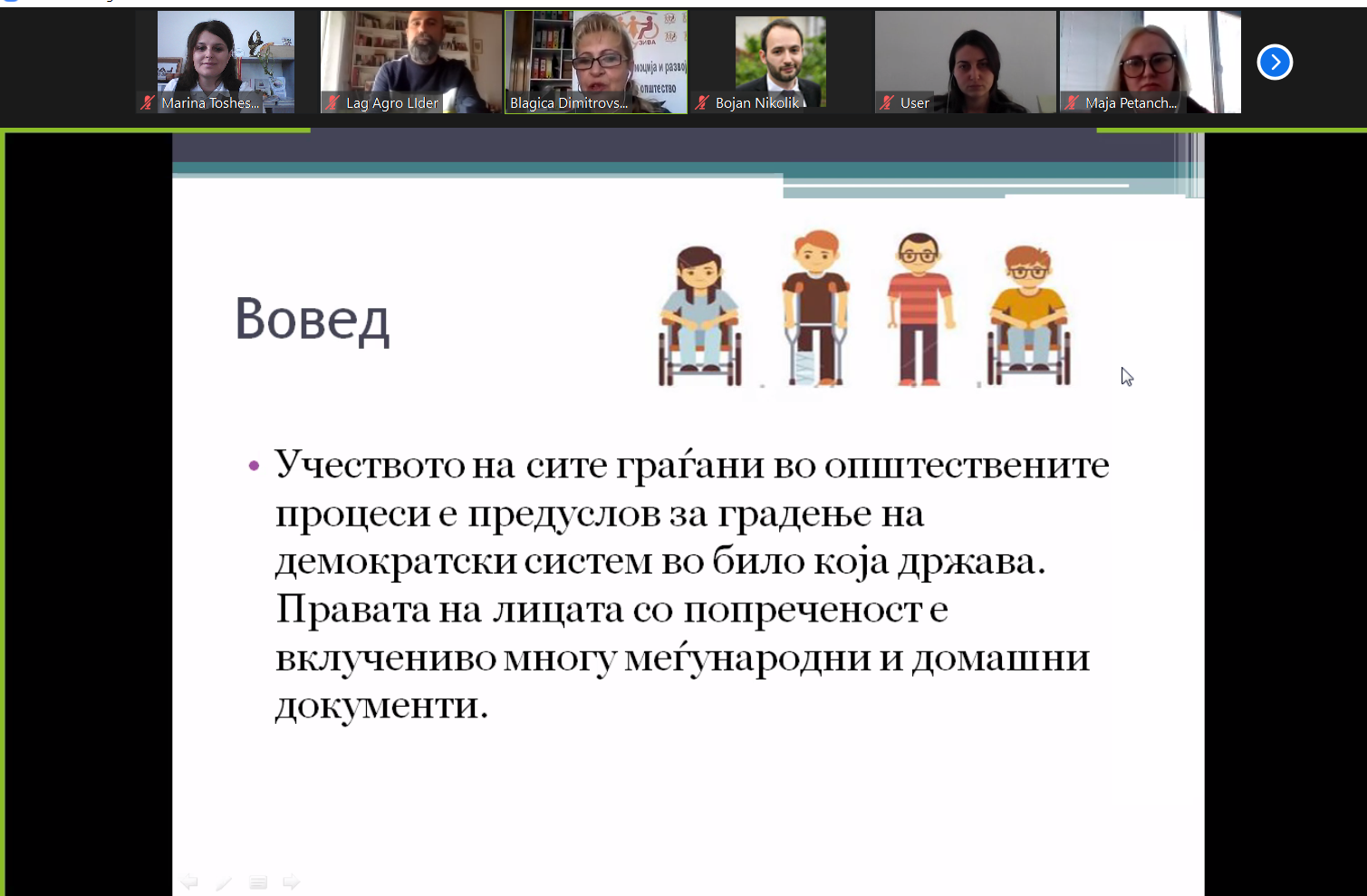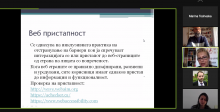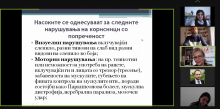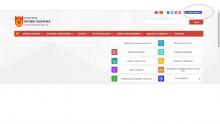Accessible public information for people with disabilities

LAG AGRO LIDER in cooperation with the Association for promotion and development of Inclusive Society INCLUZIVA, today on the ZOOM platform, organized an open presentation and debate on digital tools for communication with people with disabilities led by Ms. Blagica Dimitrovska, President of INKLUZIVA.
The workshop "Digital tools for communication with people with disabilities", in great detail addressed and explained the need for responsive websites for people with disabilities and different types of disability, while presenting already successfully implemented solutions of several local governments, showing that the process is possible , and the benefits to the stakeholders are enormous.
We are witnessing every day that information and communication technology has the power and potential to improve our daily lives in many respects, and improving access for people with disabilities is no exception. We must not neglect that people with disabilities have very different needs for accessibility (sound, sight, hearing, animation, etc.) and that modern technology already has opportunities and the ability to make the virtual user experience satisfactory and accessible to all.
In 2011, the Assembly of the Republic of Macedonia ratified the United Nations Convention on the Rights of Persons with Disabilities aimed at promoting, protecting and ensuring the full and equal enjoyment of all human rights and fundamental freedoms of persons with disabilities, as well as enhancing respect for them of their dignity. Accordingly, Macedonia has an obligation to implement the provisions of the Convention, i.e Article 9 which reads: “To enable persons with disabilities to live independently and participate fully in all aspects of life, States Parties shall take appropriate measures to ensure to persons with disabilities access, on an equal basis with others, to the physical environment, to transportation, to information and communications, including information and communications technologies and systems, and to other facilities and services open or provided to the public, both in urban and in rural areas.”
The right to access information in the Republic of Macedonia is regulated by the Constitution (Article 16) and related legal provisions. Namely, with the Law on Free Access to Public Information, the holders of information about their work are obliged to provide information to the public. According to the Law on Local Self-Government in the Republic of Macedonia, each municipality is obliged to provide citizens with access to basic information about the services it provides. Within the National Strategy for equalization of the rights of persons with disabilities 2010-2018, the state is obliged to provide access to information and communications for all persons with disabilities, as well as to develop mechanisms for access to information and communications of these persons.
However, despite the guaranteed right of access to information, persons with disabilities face various barriers and obsticales on a daily basis in the form of accessibility and access to public information in local communities..
The Association for Promotion and Development of Inclusive Society INKLUZIVA in 2017 implemented the product "Accessible public information for people with disabilities" in order to ensure the guaranteed right of access to public information in the local community to the people with disabilities, through accessible websites of the municipalities in the Northeastern part of Macedonia. The experience from the implemented project confirms the need to implement this process at the level of the entire country, and if its effects can be further improved with appropriate training for persons from the Municipalities, the institutions under their jurisdiction, bodies of the non-governmental and education sector should not be bypassed.
Content posted on the websites should be in an easy-to-understand language, accompanied by an illustrated presentation. It is advisable to use a visual representation of the content, specifically the use of videos that should be accompanied by either sign language interpretation or text transcription.
Internet accessibility assessment often focuses on compliance with accessibility standards developed by the Web Accessibility Initiative (WAI- https://www.w3.org/WAI/). This initiative has developed the Web Content Accessible Guidelines (WCAG). Web Content Access Guidelines (WCAG) 2.1 for Information and Communication Technology (ICT) are incorporated in the European standard EN 301 549 "Accessibility requirements for ICT products and services" and include web content, electronic documents, etc.
With the law on free access to public Information, the municipalities are obliged to provide information to the public about their work. According to the Law for the local municipalities in the Republic of Macedonia, each municipality is obliged to provide citizens with access to basic information about the services it provides. Let us provide, together, accessible public information and services, and to contribute towards a more inclusive society!



